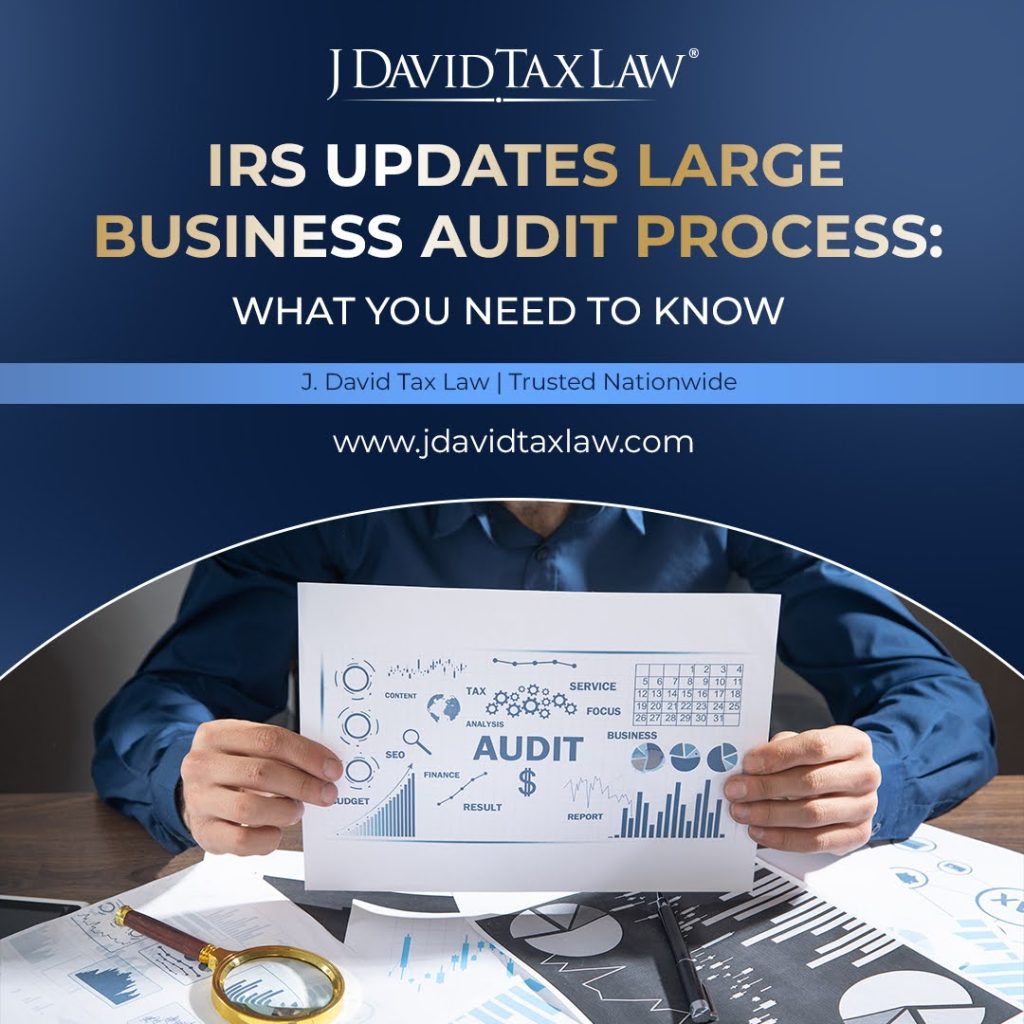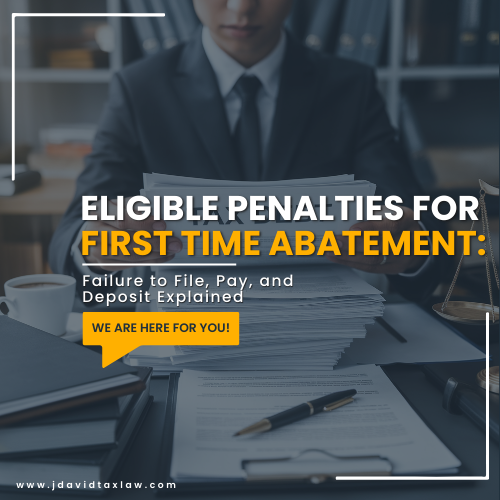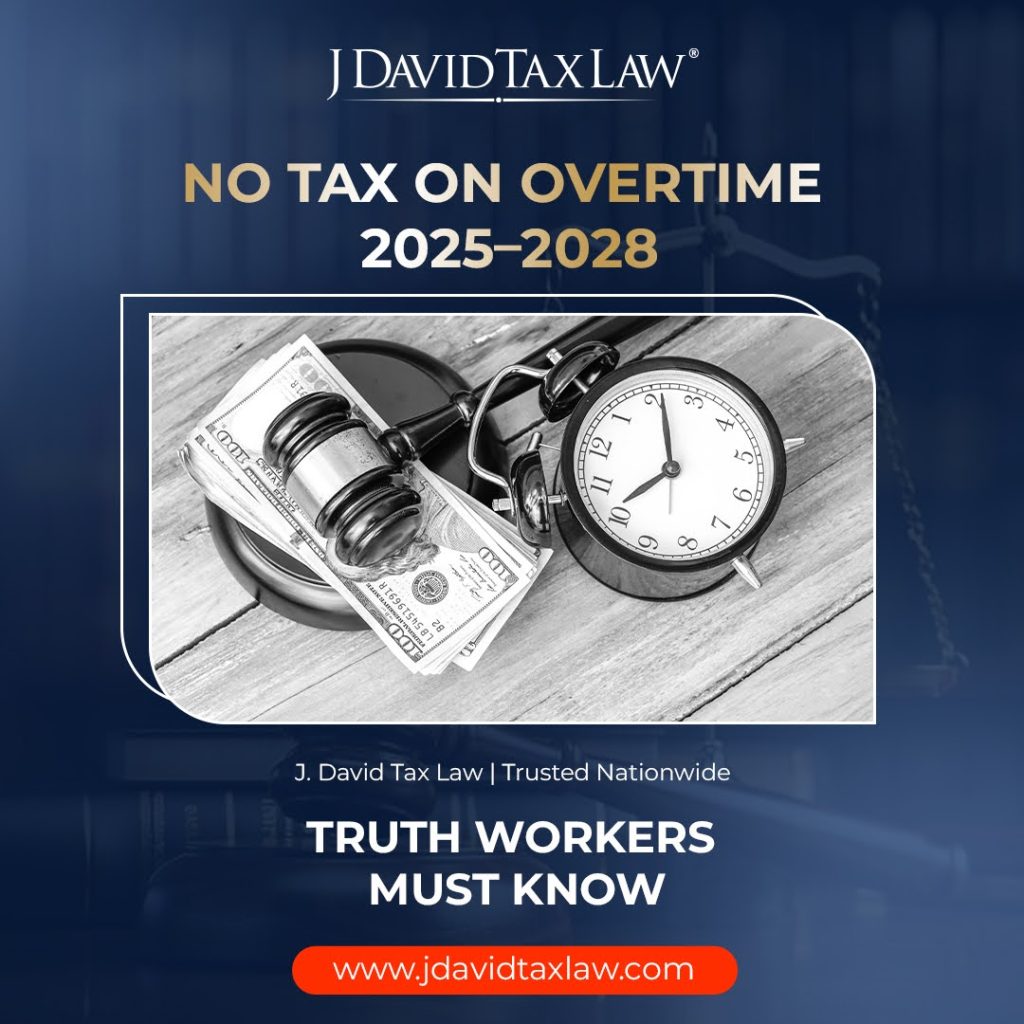Tax liens are not just a minor inconvenience; they are significant legal matters that can impair your financial stability and restrict access to essential financial opportunities. From buying a home to securing business loans, the ramifications of unresolved tax liens can hinder your plans. However, with the right guidance, these obstacles can be overcome and allow you to have a better credit score.
We will discuss the critical nature of tax liens, focusing on how they impact taxpayers. It also includes the immediate consequences and the long-term effects of leaving these liens unresolved.
Given the legal complexities associated with tax liens, partnering with a seasoned tax law expert like J. David Tax Law can be your best strategy. Their experienced team specializes in tax laws and can offer personalized guidance to effectively resolve tax liens. With their expertise, you can clear your tax obligations and reclaim your financial freedom.
Understanding Tax Liens
Dealing with tax liens is a critical aspect of fiscal management that can significantly impact individuals and businesses alike. It is a legal claim against the assets of an individual or business that fails to pay taxes owed to the government. This can include property taxes, income taxes, or other forms of federal, state, and local taxes.
When these taxes are not paid, the taxing authority, such as the Internal Revenue Service (IRS) or local county government, will issue a lien to secure the debt. This lien ensures that the government has a legal right to a portion of the proceeds from the sale of your assets if the taxes remain unpaid.
In essence, a tax lien serves as both a safeguard for the government to ensure tax collection and a significant burden for those who have them against their property or assets. It can prevent the sale or refinancing of property and can severely impact credit ratings.
Specific Laws and Regulations Regarding Tax Liens
In the United States, tax liens on real estate can significantly affect the lives of the taxpayers. Under the law, once a property tax is unpaid, the county can file a lien against the property. These liens typically take priority over most other liens, including mortgages, meaning they must be paid first if the property is sold.
The process for enforcing tax liens can vary, but generally, after a lien is placed, the property owner is given an opportunity to pay the outstanding debt. If the debt remains unpaid, the government may proceed with a tax foreclosure sale, where the property is sold at a public auction. The laws are designed not only to secure tax revenue but also to incentivize prompt payment to avoid the accrual of additional penalties and interest.
Economic Impact of Tax Liens on Individuals and the Community
The presence of tax liens can have profound economic implications both for individuals and the broader community. For individuals, a tax lien can lead to financial strain due to restricted access to capital. It can limit one’s ability to obtain loans or refinance existing ones, thereby affecting personal and business financial growth. Credit scores can also suffer, which has long-term effects on purchasing power and financial options.
For the community, widespread tax liens can lead to decreased property values, especially if liens lead to foreclosures. This, in turn, affects the overall economic health of the area. A lower property value can lead to a decreased property tax base.
The Immediate Effects of a Tax Lien
Tax liens can cast problems over your financial capabilities, impacting everything from credit scores to your ability to secure and manage loans. Understanding these immediate effects can help individuals and businesses prepare and respond effectively.
Consequences for Mortgage Approval and Interest Rates
Even if tax liens do not directly appear on your credit report, it can still create substantial hurdles in obtaining mortgage approvals. Lenders perform thorough due diligence, including looking into any public records that might indicate tax debts.
A tax lien suggests a risk of default to lenders, as it indicates financial distress or mismanagement. Consequently, getting approved for a mortgage becomes more challenging, and even if approval is granted, the interest rates offered are typically higher to offset the increased risk.
The effect of higher interest rates extends beyond just increased monthly payments. Over the life of a mortgage, even a slightly elevated interest rate can translate into significantly higher total costs. It can affect long-term financial planning and stability.
Restrictions on Refinancing and Accessing Lines of Credit
For homeowners or business owners looking to leverage existing assets, tax liens pose a critical barrier. Refinancing options become limited because most lenders require a clear title as a precondition for approving a refinancing application. A tax lien complicates this process and can outright prevent refinancing until the lien is resolved. Including adequate arrangements made for its payment.
Similarly, accessing lines of credit becomes more challenging with an active tax lien. Credit lines, whether personal or for business purposes, are essential tools for managing cash flow, making investments, or covering unexpected expenses. Lenders typically view tax liens as a substantial financial risk. It can lead to denial of credit or onerous terms that may not be feasible for many borrowers.
How to Resolve Tax Liens?
A clear plan and local resources are available to assist in tax lien resolution. This section provides a detailed step-by-step guide on how to resolve tax liens, highlights resources, and offers tips for negotiating with creditors and tax authorities.
Step-by-Step Guide on Resolving Tax Liens
Review the Lien Notice: Carefully read the lien notice to understand the amount due, the government entity you owe, and any deadlines. Verify the accuracy of the information, including the amount owed.
Contact the Tax Authority: Reach out to the IRS or the local tax collector, depending on who issued the lien. Inquire about payment plans and what steps you need to take to resolve the lien.
Evaluate Your Financial Situation: Assess your financial resources to determine how you can pay the debt. This may involve consolidating or liquidating assets.
Set Up a Payment Plan or Offer in Compromise: If you cannot pay the full amount immediately, consider requesting a payment plan to settle the debt over time. Alternatively, an Offer in Compromise may allow you to settle the debt for less than the full amount owed if you can demonstrate financial hardship.
Seek Professional Help: Consult with a tax professional or attorney who specializes in tax law and has experience dealing with tax liens. This is particularly crucial for large debts or complicated tax situations. Getting professional help from J. David Tax Law can give you a favorable outcome in your tax issues.
Pay the Debt: Once a payment agreement is in place, ensure you adhere to the terms and make payments promptly to avoid additional penalties and interest.
Obtain a Release of Lien: After the debt is paid, the tax authority should issue a lien release. This document must be filed with the county recorder’s office to be effective. You must also keep a copy when you receive this file for record-keeping purposes.
Verify Lien Release with Credit Bureaus: Once the lien is released, check your credit report to ensure it reflects the updated status. It may be necessary to contact the credit bureaus to update your record.
Planning for a Lien-Free Future
Securing a future free from the burden of tax liens requires proactive financial management and adherence to best practices in tax monitoring. For taxpayers, implementing preventive measures, developing sound financial habits, and utilizing local resources are key strategies to avoid future tax issues.
Preventive Measures to Avoid Future Tax Liens
Stay Informed: Keep up-to-date with tax laws and regulations, as these can change frequently. Understanding your tax obligations is crucial in avoiding delinquencies.
File Taxes Timely: Always file your taxes before the deadline. If you anticipate a delay, file for an extension to avoid penalties and the risk of a lien.
Set Aside Funds for Taxes: If you are self-employed or have irregular income, set aside a portion of your earnings in a separate account. This can help you settle your taxes and have the funds available when they are due.
Use Professional Tax Services: Consider hiring a tax professional from J. David Tax Law to handle your tax problems, especially if you have a complex financial situation. This can help avoid errors that might lead to liens.
Regular Financial Reviews: Schedule regular reviews of your financial status to ensure all your tax payments are up-to-date. This can help catch any potential issues early.
Don’t let tax liens disrupt your financial peace. If you’re facing challenges with tax liens or need expert advice to avoid future issues, contact J. David Tax Law today. Their team of experienced professionals is ready to help you secure a lien-free future.




















